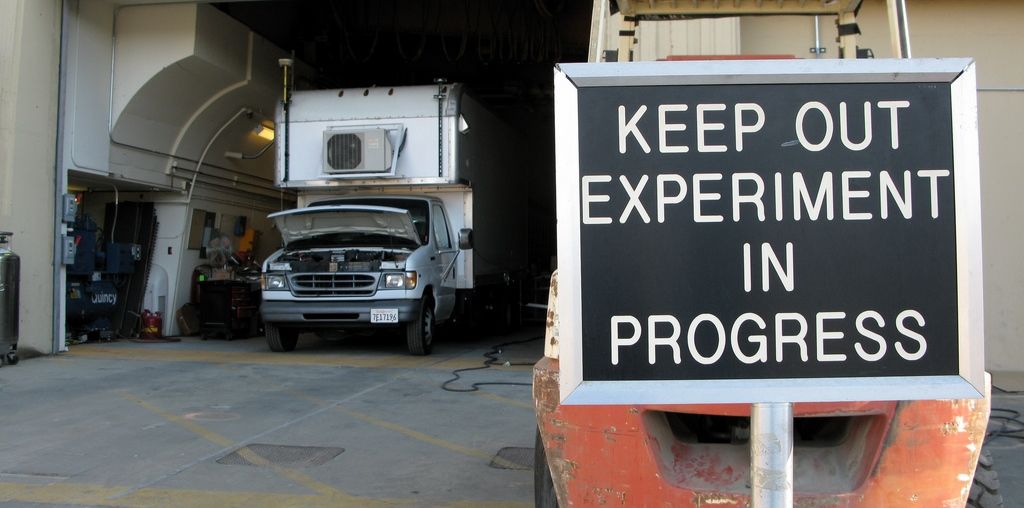
Learning happens when we are exposed to new texts, objects, and methods and when we are encouraged to experiment and take risks.
I design courses with this definition of learning in mind. Encouraging students to take risks in the classroom requires an infrastructure that allows for such risk. In many of my undergraduate classes, I use a system of evaluation called the Learning Record (LR). This system asks students to make an argument for their grade (at the mid-term and at the end of the course) that is based upon the evidence they have compiled throughout the semester. Students record observations of their learning process, and they analyze their learning process in terms of the goals of the course. They evaluate their work based on specific grade criteria established at the beginning of the course. Students provide a grade estimate, and then I offer a response that either concurs or makes a counter argument for why the grade is higher or lower. The LR encourages risk and experimentation because students have an opportunity to reflect on failure. Obviously, continued failure will not result in a high grade, but students are offered the opportunity to treat an unsuccessful assignment as an opportunity to rethink their reading, writing, or thinking processes. This same ethic of risk and experimentation carries over to how I approach writing with digital technologies in the classroom. I do not ask students to become expert graphic designers or filmmakers. While I have taught courses in which students design web pages, create audio and video compositions, and write computer code, I see these assignments as an opportunity to experiment with such technologies. Students are free to tinker with these technologies and to explore their possibilities.
My aim is to encourage this ethic of tinkering when it comes to technology and when it comes to rhetorical analysis. My hope is that students will explore and inquire and that they will develop strategies for interpreting and producing texts. In a course entitled “Anthologics,” I ask students to analyze and then join an existing scholarly conversation by editing their own anthology. The “anthological” method that I’ve developed during different iterations of this course offers students a way to map the existing rhetorical terrain, and it also allows me a flexible approach that I can revise each semester. For instance, one version of this course asks students to compile an anthology based on a research question. Students research various positions on a topic, analyze these positions using the tools of rhetorical analysis, and write a preface to their anthology that serves to map out the various arguments they have chosen to include in their text. My hope is that students learn the advantages of listening before arguing and of understanding what is at stake in an argument before dismissing it. While technology is put to use in this course on “Anthologics,” it is not always the primary focus of this course. In a class called “Writing and Coding,” technology—more specifically, computation—is the central concern. Students in that class write code, create video games, and program Arduino circuit boards. By engaging computation as a rhetorical and creative medium, they are able to explore the similarities and differences between writing and computer programming.
Many of the pedagogical practices described above apply to my graduate courses as well. However, my main goal in teaching graduate courses is to continually rethink both the process and products of the graduate seminar. In “New Media Interfaces and Infrastructures,” we treated an emerging writing space, Google Wave, as both a tool and our central object of study. We both used and analyzed Google Wave, and we collaboratively composed an essay describing our approach to the seminar. That essay, published in Pedagogy, argues that new media objects provide an opportunity for the English Studies classroom to serve as a space for both technological and theoretical tinkering. My other attempt to rethink the graduate seminar involves a pedagogical approach I describe as “drilling down.” Students read a contemporary debate in rhetorical studies, and then they explore the texts that serve as the foundations of that debate. Rather than starting from “the beginning” of any conversation, this approach communicates to students that we’re always jumping into the middle of things, and it provides them with some strategies for mapping the terrain of contemporary debates in rhetorical studies.
Each of these courses places students in the middle of complex ecologies of texts and technologies, asking them to experiment, tinker, and navigate those ecologies. The goal of such an approach is not necessarily mastery of a body of material, though this is certainly a by-product of many of these courses and assignments. Instead, I aim to establish a possibility space for students—an environment in which they can encounter new ideas and objects and in which they can learn to express ideas and arguments across various media.
